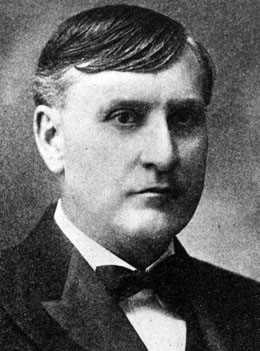On November 8, 1904, Theodore Roosevelt (1858-1919) wins the presidency and Republicans win state offices in Washington. Republican Albert E. Mead (1861-1913), nominated through the influence of railroad interests, beats Democrat George Turner for the governor's office.
A Square Deal
Roosevelt, who succeeded to the presidency in 1901 upon the death of William McKinley (1841-1901), represented his first term as a "Square Deal" between labor and capital when he intervened in labor disputes and to regulate trusts and corporation.
He ran against "Gold Democrat" Alton B. Parker (1852-1926) who favored a return to a strict gold standard as monetary policy. Parker's platform differed little from that of Roosevelt, however, and he tallied only 38 percent of the national popular vote.
Democracy According to James J. Hill
The incumbent governor in Washington was Henry G. McBride (1856-1937), who succeeded John Rogers (1938-1901) upon Rogers's death in 1901. McBride supported the establishment of a commission to set railroad rates. During the Republican nominating convention in Spokane, Great Northern Railway president James J. Hill (1838-1916) ordered party leaders to block McBride's nomination. Hill's efforts resulted in the nomination of Albert Mead.
Such blatant tactics influenced the next legislature to establish the railroad commission.

